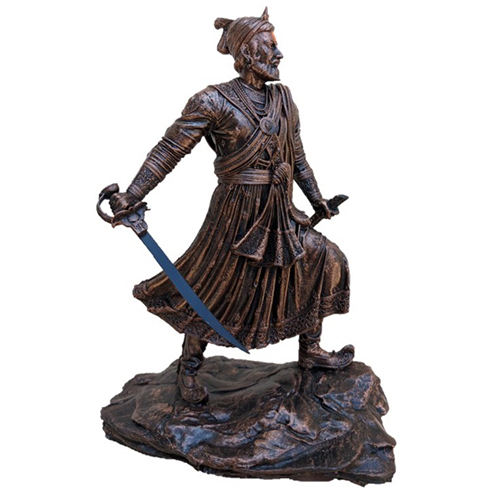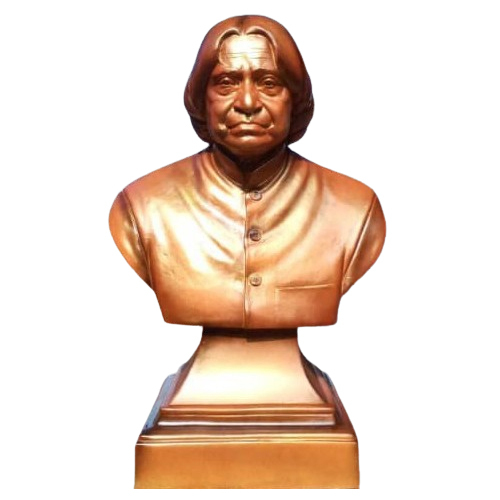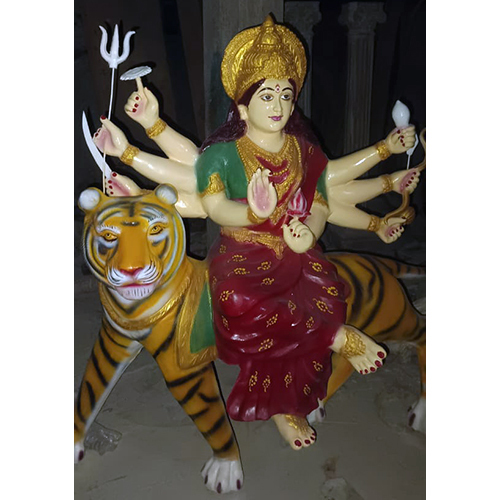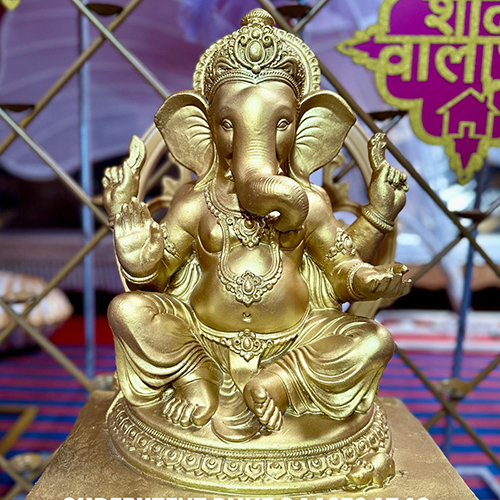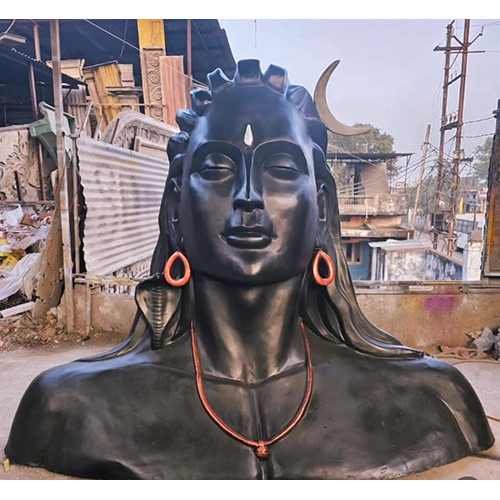Call: 08045475496
FRP Chhatrapati Shivaji statue
35000.0 INR/Unit
Product Details:
- Weight 17 Kilograms (kg)
- Width 2 Foot (ft)
- Color Brown
- Density 17 Kilogram per litre (kg/L)
- Size Custom
- Length 3 Foot (ft)
- Click to View more
X
FRP Chhatrapati Shivaji statue Price And Quantity
- 35000.0 INR/Unit
- 1 Unit
FRP Chhatrapati Shivaji statue Product Specifications
- Polished
- 2 Foot (ft)
- 17 Kilogram per litre (kg/L)
- Brown
- Custom
- Outdoor
- 17 Kilograms (kg)
- FRP
- FRP
- 3 Foot (ft)
- 3 Foot (ft)
- 3 Millimeter (mm)
FRP Chhatrapati Shivaji statue Trade Information
- Cash in Advance (CID)
- 100 Unit Per Month
- 7 Days
- Yes
- All India
Product Description
Shivaji Maharaj (Shivaji Bhonsle) (c. 19 February 1630 3 April 1680) was an Indian ruler and a member of the Bhonsle dynasty. He carved out his own independent kingdom from the Sultanate of Bijapur in the 17th century, which eventually formed the genesis of the Maratha Confederacy. In 1674, he was formally crowned the Chhatrapati (emperor) of his realm at Raigad Fort.Here are some key aspects of Shivaji Maharaj's life and achievements:
- Early Life: Shivaji was born in the hill-fort of Shivneri, near Junnar (now in the Pune district of Maharashtra). His mother, Jijabai, played a significant role in shaping his early life and instilling in him a sense of pride and the dream of establishing a Hindu kingdom.
- Foundation of the Maratha Empire: By the age of 16, Shivaji began his campaign for self-rule by capturing Torna Fort in 1645. He strategically acquired numerous forts and territories, challenging the Adilshahi Sultanate of Bijapur and later the Mughal Empire.
- Military Prowess and Strategies: Shivaji was renowned for his innovative military tactics, including guerrilla warfare (Guerilla warfare), which allowed his smaller forces to effectively combat larger and more established armies. He also understood the importance of naval power and built a strong Maratha navy.
- Conflict with the Mughals: Shivaji engaged in prolonged conflicts with the Mughal Empire under Aurangzeb. Despite facing setbacks, including imprisonment in Agra, he daringly escaped and continued his resistance, eventually recovering lost territories and expanding his influence.
- Coronation as Chhatrapati: In 1674, Shivaji was crowned Chhatrapati, signifying the formal establishment of an independent Maratha Empire. This was a momentous occasion for the Hindu Marathas in a region largely ruled by Muslims.
- Administrative Reforms: Shivaji established a well-organized administrative system with a council of eight ministers (Ashta Pradhan) to assist him. He implemented revenue reforms, a disciplined military structure, and promoted trade.
- Religious Tolerance: Despite being a devout Hindu ruler, Shivaji was known for his religious tolerance. He employed people of all castes and religions in his administration and army and respected places of worship of all faiths.
- Legacy: Shivaji Maharaj is revered as a national hero in India, embodying courage, leadership, and the spirit of resistance against oppression. His vision of Hindavi Swarajya (self-rule of Hindu people) and his efforts to build an independent Maratha kingdom left a lasting impact on Indian history.
Shivaji's birth date is widely commemorated on February 19th as Shivaji Jayanti, although some historical records suggest other dates. He passed away on April 3, 1680, at Raigad Fort.
Tell us about your requirement

Price:
Quantity
Select Unit
- 50
- 100
- 200
- 250
- 500
- 1000+
Additional detail
Mobile number
Email
 Send Inquiry
Send Inquiry